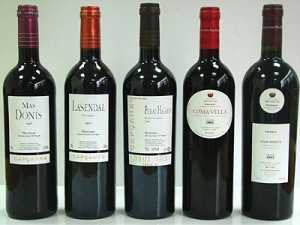Happiness and Creativity
The 2017 World Happiness Report was released yesterday. The headlines today are all about Norway, which supplanted Denmark as the happiest country in the world. That’s nice and I’m sure that Norwegians are celebrating today. But what intrigues me is the relationship between happiness and creativity. (See also here, here and here).
In 2015, the Martin Prosperity Institute published the Global Creativity Index. Reviewing the two lists together suggests that the relationship between happiness and creativity is very tight indeed. Here are the top ten countries on each list.
| Rank | Happiness (2017) | Most Creative (2015) |
| 1 | Norway | Australia |
| 2 | Denmark | United States |
| 3 | Iceland | New Zealand |
| 4 | Switzerland | Canada |
| 5 | Finland | Denmark |
| 6 | Netherlands | Sweden |
| 7 | Canada | Finland |
| 8 | New Zealand | Iceland |
| 9 | Australia | Singapore |
| 10 | Sweden | Netherlands |
Of the ten happiest countries in the world, eight also make the top ten list for most creative countries in the world. The two that miss — Norway and Switzerland — don’t miss by much. Norway is 11th on the most creative list; Switzerland is 16th.
Conversely, of the ten most creative countries in the world, eight also make the list of the happiest countries in the world. Again, the two that don’t make the list — the United States and Singapore — don’t miss by much. The United States is 14th; Singapore is 26th.
What’s it all mean? I can think of at least four ways to interpret the data:
- Happiness causes creativity — there’s a meme that says that only tortured geniuses are truly creative. Perhaps it’s wrong. Perhaps you have to be happy to be creative.
- Creativity causes happiness — this explanation appeals more to me. I know that when I create something (like an article for this website), it makes me happy. I get a little glow of accomplishment. On the other hand, I know happy people who aren’t very creative and vice-versa.
- A hidden third variable causes happiness and creativity to correlate — perhaps there’s something else going on. It could be income — all of the countries are fairly rich. It could be government policy — they all invest public funds in research. It could be geography — they are all fairly far from the equator. It could be language — all of the countries on the list have very good English language skills.
- The two surveys are measuring essentially the same thing — though the two surveys seem quite different, perhaps they really measure the same thing. Perhaps happiness and creativity are so throughly intertwined that we can’t tease them apart.
It’s also interesting to delve into which countries have the best combination of happiness and creativity. We can make some crude judgments by adding up the national position in each survey. Like golf, the low score wins. For instance, Denmark is second in happiness and fifth in creativity, for a combined score of seven. As it happens, that’ s the lowest score — so Denmark takes first place in the combined league table. Here are the top five combined scores. I don’t know about you but I think I’ll soon pay a visit to Denmark.
| Rank | Country | Combined Score |
| 1 | Denmark | 7 |
| 2 | Australia | 10 |
| 3 | Iceland | 11 |
| 3 (tie) | Canada | 11 |
| 3 (tie) | New Zealand | 11 |
Self-Herding At Breakfast

Just like Grandma served.
I’ve always believed that breakfast is the most important meal of the day. Why? Because my mother told me so. Why did she believe it? Because her mother told her so. Who told her? Probably Edward Bernays, “the father of public relations.”
Is it true that breakfast is the most important meal of the day? Well, maybe not. If not, I’ve been self-herding for most of my life. I reached a decision (without much thinking) that breakfast was important. My only evidence was my mother’s advice.
Making the decision may have been a mistake. But, c’mon … she was my Mom. The more egregious mistake is that I never doubled back on the decision to see if anything had changed. I made the decision and never thought about it again. I self-herded into a set of fixed behaviors.
I also suffered from the confirmation bias. Researchers published articles from time to time confirming that breakfast is important. These studies confirmed what I already believed. Since the studies didn’t challenge my mental framework, I didn’t bother to check them closely. I just assumed that they were good science.
As it turns out, those studies were based on observations. Researchers observed people’s behavior and noted that people who ate breakfast were also generally healthier and less likely to be obese compared to people who didn’t. Clearly, breakfast is important.
But let’s think about this critically. There are at least three possible relationships between and among the variables:
- Eating breakfast causes people to be healthier – breakfast causes health
- Healthier people eat breakfast more than unhealthy people – health causes breakfast
- Healthier people eat breakfast and also do other things that contribute to good health – hidden variable(s) lead to healthiness and also cause people to eat breakfast.
With observational studies, researchers can’t easily sort out what causes what.
So James Betts and his colleagues did an experimental study – as opposed to an observational study – on the relationship between breakfast and good health. (The original article is here. The popular press has also covered the story including the New York Times, Time magazine, and Outside magazine).
Betts’ research team randomly assigned people to one of two groups. One group had to eat breakfast every day; the other group was not allowed to do any such thing. This isolates the independent variable and allows us to establish causality.
The trial ran for six weeks. The result: nothing. The researchers found no major health or weight differences between the two groups.
But previous research had found a correlation between breakfast and good health. So what caused what? It was probably a cluster of hidden variables. Betts noted, for instance, “…the breakfast group was much more physically active than the fasting group, with significant differences particularly noted during light-intensity activities during the morning.”
So it may not be breakfast that creates healthier outcomes. It may be that breakfast eaters are also more physically active. Activity promotes wellness, not breakfast.
If that’s true, I’ve been self-herding for many years. I didn’t re-check my sources. If I had, I might have discovered that Edward Bernays launched a PR campaign in the 1920s to encourage people to eat a hearty breakfast, with bacon and eggs. Bernays was working for a client – Beech-Nut Packing Company – that sold pork products, including bacon. I suspect the campaign influenced my grandmother who, in turn, influenced my mother who, in turn, influenced me. The moral of the story: check your sources, re-check them periodically, and be suspicious of observational studies. And don’t believe everything that your mother tells you.
(By the way, I recently published two short articles about the effects of chocolate and sex on cognition. Both of these articles were based on observational studies. Caveat emptor).
Business School And The Swimmer’s Body Fallacy

He’s tall because he plays basketball.
Michael Phelps is a swimmer. He has a great body. Ian Thorpe is a swimmer. He has a great body. Missy Franklin is a swimmer. She has a great body.
If you look at enough swimmers, you might conclude that swimming produces great bodies. If you want to develop a great body, you might decide to take up swimming. After all, great swimmers develop great bodies.
Swimming might help you tone up and trim down. But you would also be committing a logical fallacy. Known as the swimmer’s body fallacy, it confuses selection criteria with results.
We may think that swimming produces great bodies. But, in fact, it’s more likely that great bodies produce top swimmers. People with great bodies for swimming – like Ian Thorpe’s size 17 feet – are selected for competitive swimming programs. Once again, we’re confusing cause and effect. (Click here for a good background article on swimmer’s body fallacy).
Here’s another way to look at it. We all know that basketball players are tall. But would you accept the proposition that playing basketball makes you tall? Probably not. Height is not malleable. People grow to a given height because of genetics and diet, not because of the sports they play.
When we discuss height and basketball, the relationship is obvious. Tallness is a selection criterion for entering basketball. It’s not the result of playing basketball. But in other areas, it’s more difficult to disentangle selection factors from results. Take business school, for instance.
In fact, let’s take Harvard Business School or HBS. We know that graduates of HBS are often highly successful in the worlds of business, commerce, and politics. Is that success due to selection criteria or to the added value of HBS’s educational program?
HBS is well known for pioneering the case study method of business education. Students look at successful (and unsuccessful) businesses and try to ferret out the causes. Yet we know that, in evidence-based medicine, case studies are considered to be very weak evidence.
According to medical researchers, a case study is Level 3 evidence on a scale of 1 to 4, where 4 is the weakest. Why is it so weak? Partially because it’s a sample of one.
It’s also because of the survivorship bias. Let’s say that Company A has implemented processes X, Y, and Z and been wildly successful. We might infer that practices X, Y, and Z caused the success. Yet there are probably dozens of other companies that also implemented processes X, Y, and Z and weren’t so successful. Those companies, however, didn’t “survive” the process of being selected for a B-school case study. We don’t account for them in our reasoning.
(The survivorship bias is sometimes known as the LeBron James fallacy. Just because you train like LeBron James doesn’t mean that you’ll play like him).
So we have some reasons to suspect the logical underpinnings of a case-base education method. So, let’s revisit the question: Is the success of HBS graduates due to selection criteria or to the results of the HBS educational program? HBS is filled with brilliant professors who conduct great research and write insightful papers and books. They should have some impact on students, even if they use weak evidence in their curriculum. Shouldn’t they? Being a teacher, I certainly hope so. If so, then the success of HBS graduates is at least partially a result of the educational program, not just the selection criteria.
But I wonder …
Critical Thinking, Framing, and Red Wine

What else should I have?
I like wine, especially red wine. My tastes range from elegant to earthy. In fact, I’m not terribly discriminating – I like to sample them all.
I also feel the need to justify my red wine indulgences. So I’m always looking for news about the positive health effects of drinking red wine. (This is a classic case of System 2 rationalizing a decision that was initially made – for entirely different reasons — in System 1. My System 1 made the decision; my System 2 justifies it.)
As you may know, there’s plenty of good news about red wine and good health. Generally, drinking red wine is associated with better health and longer life. It’s a J-shaped curve, “…light to moderate drinkers have less risk than abstainers, and heavy drinkers are at the highest risk.” Drink a little bit and you get healthier; drink too much and you get unhealthier.
Is there a cause-and-effect relationship here? It certainly hasn’t been proven. All we’ve been able to show so far is that there is a correlation. A change in one variable is correlated to a change in another variable. Just because variable A happens before variable B, doesn’t mean that A causes B. (That would be the post hoc, ergo propter hoc fallacy as the President points out in West Wing).
Yet many scientists have assumed that there is a cause-and-effect relationship and framed their studies accordingly. The typical approach is to break down the various elements of red wine to isolate the ingredient(s) that cause the beneficial health results. Is it ethanol? Is it resveratrol? Notice the assumption: there is something in the wine that causes the beneficial health result. The studies are narrowly framed.
Is this good critical thinking? Maybe not. Maybe we’re framing too tightly and assuming too much. Maybe there’s a third variable that causes us to drink red wine and be healthier.
I started thinking about this when I stumbled across a study conducted in Denmark more than a decade ago. The Danish researchers didn’t study wine. Rather, they looked at human behavior. More specifically, they looked at 3.5 million grocery store receipts.
The Danish researchers asked three interrelated questions: 1) What do wine drinkers eat? 2) Is this different from what non-wine-drinkers eat? 3) If so, could the differences in overall diet be the cause of the health effect?
The researchers looked at several specific combinations:
- What else did people who bought wine – but not beer – buy at the grocery store? (This group comprised 5.8% of the 3.5 million receipts)
- What else did people who bought beer – but not wine – buy at the grocery store? (6.6% of the total receipts).
- What else did people who bought both beer and wine buy at the grocery store? (1.2% of the total receipts).
I won’t try to summarize everything but here’s the key finding:
“This study indicates that people who buy (and presumably drink) wine purchase a greater number of healthy food items than those who buy beer. Wine buyers bought more olives, fruit or vegetables, poultry, cooking oil, and low fat products than people who bought beer. Beer buyers bought more ready cooked dishes, sugar, cold cuts, chips, pork, butter, sausages, lamb, and soft drinks than people who bought wine. Wine buyers were more likely to buy Mediterranean food items, whereas beer buyers tended to buy traditional food items.”
So, does wine cause good health? Maybe not. Maybe we framed the question improperly. Maybe we’ve been studying the wrong thing. Maybe it’s the other things that wine drinkers do that improve our health. As usual, more studies are needed. While I wait for the results, I think I’ll have a nice glass of Priorat.
Have We Got It All Backwards?

Don’t shoot!
The concept of cause-and-effect is very slippery. We think that A causes B only to find that C really causes both A and B. Or, perhaps it’s really B that causes A. More subtly, A might influence B which turns right around and influences A.
Lately, I’ve been thinking that we’ve been looking at a lot of things from the wrong end of the telescope. Some examples:
Our brain creates us – what creates our personality and the essence of who we are? Why our brains, of course. My brain is the cause; my personality is the effect. Further, the brain is what it is; there’s not much we can do about it. Well…not so fast. Maybe we got it backwards. It turns out that the brain is plastic; we can change it through our habits, actions, and thoughts. In many ways, we create our brains rather than the other way round. Norman Doidge is a leading writer on brain plasticity. You can find his books here and here.
Mutate first; adapt later – our general model of evolution suggests that random mutations happen in our DNA. Mutations that provide a competitive edge are then preserved and passed on. Mutations that aren’t so helpful just fade away. But, according to a recent article in New Scientist, we may have it backwards. Again, plasticity is a key concept. “A growing number of biologists think … plasticity may also play a key role in evolution. Instead of mutating first and adapting later, they argue, animals often adapt first and mutate later.”
I am the master of my fate – I used to believe that I was in control. Now I realize that my System 1 often makes decisions without any input from “me”. Indeed, I don’t even know the decisions are being made. But it’s not just my “primitive brain” that molds my behavior. It’s also how fast my heart beats and how healthy my vagus nerve is. But it’s not even just my body that steers me. It’s also the microbes in my gut. When the microbes team up, they can make me do bizarre things – like eating chocolate. They may even contribute to schizophrenia.
OCD starts with thoughts – we’ve always assumed that irrational thoughts create obsessive compulsive disorder. Irrational thoughts begin in the brain and radiate outward to produce irrational behavior. But, as Clare Gillan points out, we may have it backwards. When she induced new habits in volunteers, she found that people with OCD change their beliefs to explain the new habit. In other words, behavior is the cause and belief is the effect.
The gardener manages the garden – Suellen loves to garden and will spend hours at hard labor under a hot sun. When I see how hard she works, I wonder if she’s managing the flowers or if they’re managing her. It’s not a new thought. The Botany of Desire makes the same point.
What else have we gotten backwards? It’s hard to know. But, as the Heath brothers point out in Decisive, if you believe A causes B, you owe it to yourself to consider the opposite.
